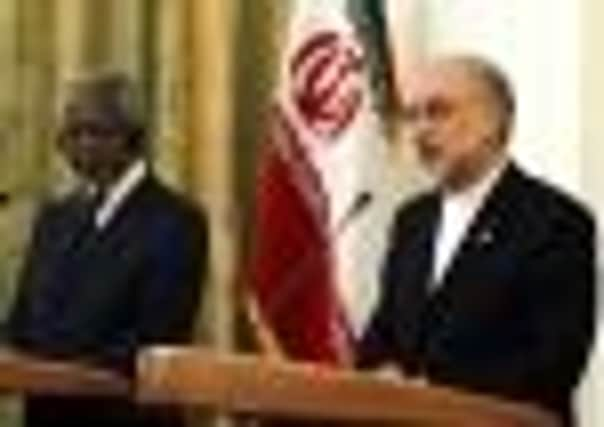Analysis: Iran in a waiting game as oil row simmers on


Those urging caution clearly have the upper hand – at least for now. Many Iran experts doubt it will be a “hot summer” despite military posturing and strident rhetoric from Iran and the United States.
Iran, significantly, did not carry out earlier incendiary threats to close the Strait of Hormuz when a slow-burning EU embargo on Iranian oil imports to the bloc came fully into effect two weeks ago.
Advertisement
Hide AdAdvertisement
Hide AdNor has Tehran withdrawn from stalemated nuclear negotiations with six world powers, led by the US.
“At this particular moment, given the signals that are coming out of Iran, it doesn’t look like they’re going to push it to a confrontation this summer,” said Gary Sick, an Iran expert at Columbia University, in New York.
“On the other hand, they can up the ante very quickly if they decide that’s the way to go,” added Mr Sick, the chief White House aide on Iran during the 1979 Islamic revolution.
The private deliberations in Tehran are reflected in conflicting public statements.
Military commanders and hardline parliamentarians are issuing blustery new threats over the Strait of Hormuz while senior Iranian diplomats are sending conciliatory messages.
The naval commander of Iran’s elite Revolutionary Guards, Ali Fadavi, warned on Saturday Iran could prevent even “a single drop of oil” passing through the Strait if its security was threatened.
But days earlier, Iran’s foreign minister, Ali Akbar Salehi, said Tehran had no intention of closing the Strait unless his country is denied access to the Persian Gulf, adding: “I don’t think such a time will ever come.”
Diplomacy was the only way to resolve the nuclear impasse, he said on another occasion.
Advertisement
Hide AdAdvertisement
Hide AdTehran’s strategy is to keep desultory nuclear talks ticking over until the US elections in November, hoping Barack Obama will win a second term. Then, presumably less restrained by Republican and Israeli pressure, he can offer Tehran a better deal.
The US and its Western allies also seem content to play a waiting game, relying on the growing pain of sanctions to force an Iranian compromise on its nuclear programme, which Tehran insists is solely peaceful in nature.
Questionable, however, is how much punishment Iran can passively soak up without looking weak at home and abroad.
Iran’s oil exports are estimated to have plummeted by 40 to 50 per cent in the past year because of EU and US sanctions, costing Tehran some £2.2 billion a month.